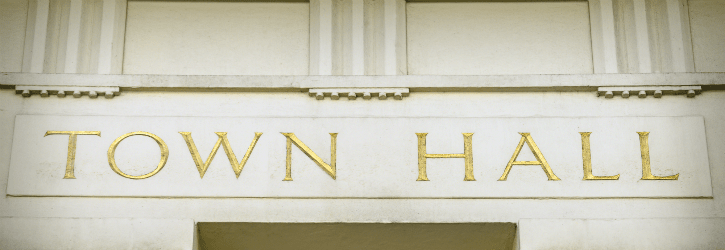
Welcome To The Data Leak Lawyers Blog
We focus on the latest news surrounding data breaches, leaks and hacks plus daily internet security articles.

We focus on the latest news surrounding data breaches, leaks and hacks plus daily internet security articles.

Leicester City Council accidentally sent an unsecured spreadsheet to 27 taxi firms that reportedly contained sensitive details of potentially thousands of vulnerable adults and children.
The error occurred as the local government authority were processing tenders for transport of people in care and people with special needs.
Although a recall email was sent, there is no telling just how far the data may have inadvertently spread.
read more

There is a recent worrying trend of NHS staff being caught out snooping on people they know, or are related to, by abusing their powers to access their medical records.
Let’s be absolutely clear: it is NOT okay for any member of the NHS to access their neighbour’s medical records without good reason or due authorisation.
If you are informed that a member of the NHS staff has accessed your medical records in such a way, or if you discover it has happened, you may be entitled to claim for data protection breach compensation.
read more

In what Hywel Dda University Health Board admitted to be the second data protection breach they have faced of this nature, yet another NHS worker has been caught accessing confidential medical records without a valid reason.
Instances of NHS workers accessing medical records when they have no reason or right to access them is a common problem at the moment. Most of the time, staff committing the breaches are accessing records for people they know out of nothing more than curiosity.
read more

It’s not only NHS workers who are breaching data protection rules by accessing medical records when they shouldn’t be. There’s also a worrying trend of data being breached by the rogue actions of employees, and with data being so easily shared nowadays, we remain concerned.
With a huge amount of councils lacking proper mandatory data protection training, you could argue there are potentially thousands of employees out there who don’t know any better. This is not good enough, and these prosecutions should serve as stern warnings to both employers and employees about breaching data protection rights by illegally sharing data.
read more

New information from the Big Brother Watch privacy group suggests that local authorities are still failing to report data protection breaches. In May 2018, the new GDPR legislation will come into force and councils will have to abide by regulations that will make the reporting of many data protection breaches compulsory.
But, aside from the impact the new laws may have, we cannot avoid the underlying issue here. With estimations that UK councils have been hit by almost 100 million cyberattacks in the last five years, the fact of the matter is that sensitive data is vulnerable in their hands.
read more

Research tells us that the biggest threat to a company or organisation’s cybersecurity is its own employees.
Although cyber-attacks are usually initiated by third party actors with malicious intent, it can be the shortcomings of employees that allow systems to become vulnerable. On top of that, employees who fail to adhere to policies and procedures are normally responsible for data leaks. With many employees working remotely, or with the ability to log in to servers from home, risks are increasing all the time.
read more

Robert Morrisey was prosecuted by Preston Crown Court for sending confidential information about 183 people to his personal computer.
At the time of the breach, Morrisey was working as a mentoring co-ordinator for Rochdale connections Trust charity.
In copying the sensitive information without permission or the knowledge of his employer, Morrisey lost his job. He also lost his position as a Magistrate and was ordered to pay over £1,800.00.
read more

In the past few years, the National Health Service (NHS) has made attempts to expand and ease the pressure on its extremely busy and hectic services with use of new technology. This included setting up an entire NHS internal email system that allows staff to send ‘secure’ emails to each other to share ‘sensitive information’.
An electronic prescription service is also available that allows GPs to send a prescription directly to a pharmacy.
But in the increasingly interconnected digital world, what are the concerns over using such technology? Should we be worried?
read more

Despite Information Commissioner’s Office (ICO) warnings, NHS employees are continuing to breach data protection laws. We again see employees being found guilty of illegally accessing medical records belonging to people they know – i.e. family, friends, neighbours and colleagues – we assume this data snooping is merely to satisfy their curiosity.
In this latest batch, three perpetrators were fined by the ICO for their clear and obvious breaches, and we are yet again left wondering what can be done to stop these continual events happening.
read more

Although we appreciate the hard work of those who work in our councils and local government bodies, data breaches in the public sector remain a big problem. In order to do their jobs, these establishments often need access to a lot of our personal data such as contact details, medical records, criminal records, etc.
We trust them with this information because, after all, they’re a part of the public establishment who are supposed to be there to look after our best interests. But there have been a large number of data breach cases that have left many worried about our data in their hands.
read more
EasyJet admits data of nine million hacked
British Airways data breach: How to claim up to £6,000 compensation
Are you owed £5,000 for the Virgin Media data breach?
Virgin Media faces £4.5 BILLION in compensation payouts
BA customers given final deadline to claim compensation for data breach
Shoppers slam Morrisons after loyalty points stolen
Half a million customers can sue BA over huge data breach
Lawyers accuse BA of 'swerving responsibility' for data breach
The biggest data breaches of 2020
Fill out our quick call back form below and we'll contact you when you're ready to talk to us.